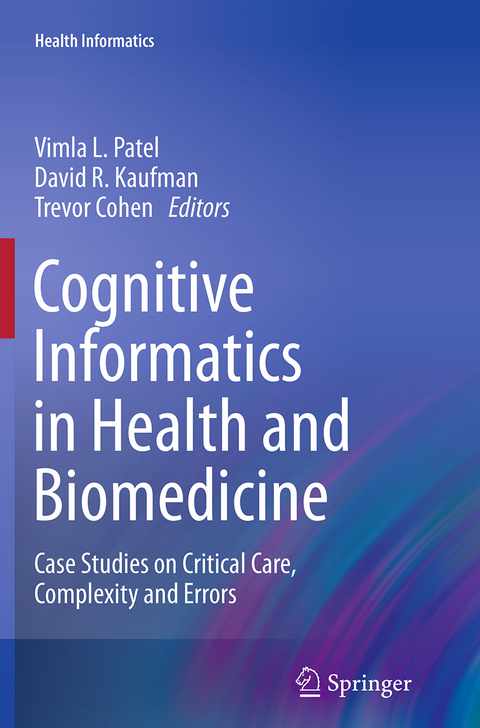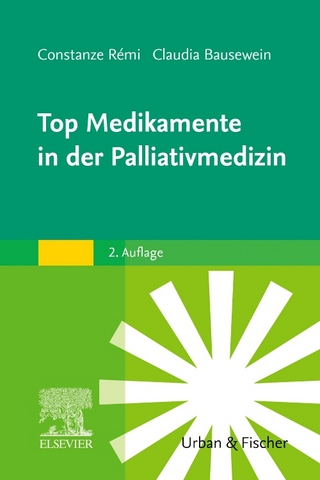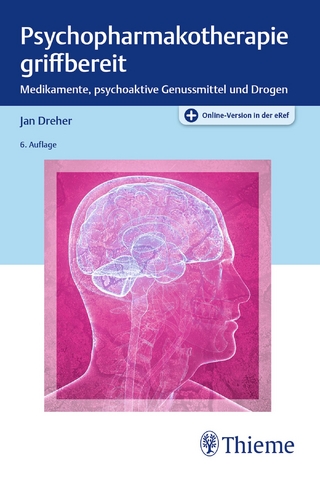
Cognitive Informatics in Health and Biomedicine
Springer London Ltd (Verlag)
978-1-4471-7039-6 (ISBN)
This book represents a first textbook on cognitive informatics and
will focus on key examples drawn from the application of methods and theories from CI to challenges pertaining to the practice of critical-care medicine (CCM). Technology is transforming critical care workflows and
re-organizing patient care management processes. CCM has proven to be a fertile test bed for theories and methods of cognitive informatics. CI, in turn, has contributed much to our understanding of the factors that result in complexity and patient errors. The topic is strongly interdisciplinary and will be important for individuals from a range of academic and professional backgrounds, including critical care specialists, psychologists, computer scientists, medical informaticians, and anthropologists.
Dr Vimla Patel is a Senior Research Scientist and Director of the Center for Cognitive Studies in Medicine and Public Health at the New York Academy of Medicine. Dr. Patel is an accomplished researcher in the areas of biomedical informatics, cognitive psychology and their application in health and medical care settings, especially in the areas of translation of evidence into practice. A leader in adapting methods and theories from cognitive science and in innovating new approaches to translating knowledge into action, Dr. Patel’s research explores the role of cognition in designing a safer clinical workplace, the complexity of group decision making underlying critical-care decisions, the generation of medical errors, and the impact of technology on human cognition for competent performance. Dr. David R. Kaufman is a visiting Scholar at the New York Academy of Medicine. Dr. Kaufman’s primary research interests include human computer interaction in the context of health information technologies, information seeking behavior and decision making in healthcare contexts, and conceptual understanding of biomedical information and decision making by lay people. Trained as an educational psychologist and cognitive scientist, he has conducted several usability evaluation studies with a range of populations. Dr. Trevor A. Cohen is an Assistant Professor in the School of Biomedical Informatics at the University of Texas Health Science Center, Houston and is affiliated with the Center for Cognitive Informatics and Decision Making. His primary research interest is in empirical distributional semantics – what machines can learn about meaning from unannotated text – and how this learning relates to human cognition. In addition, he has researched how humans detect and recover from error, in particular medical error.
Foreword.- Preface.- Introduction.- Paradigm Shift in Conceptualizing Error.- Analysis of Error based on Laboratory Studies.- Team Decision Making and the Analysis of Error.- Influence of Training on Error Detection in Simulated Clinical Rounds.- Opportunistic Decision Making and Workflow Patterns.- Decision Making and Deviations from Protocol in Trauma.- Effect of Information Seeking Activities on Clinical Decision Making.- Investigating Communication Complexity and Errors: A Continuity of Care based Approach.- Bridging Gaps in Transitions of Care: Design and Evaluation of Handoff Intervention Tool.- Driven to Distraction: Classifying Interruptions in Intensive Care.- Shared Mental Models in Team Handoff.- Enhancing Communication and Improving Coordination in ICU.- The interplay of organizational structure and communication practices.- Activity Prediction and Automated Workflow Modeling using RFID Sensors.- Sensor-based Tracking of Team Interactions and Clinical Workflow.- Work Domains, Complexity and Situation Awareness in the ED.- A framework for understanding error and complexity in critical care.- Communication and Complexity: Negotiating transitions in shift work and the coordination of patient care.- Learning and Competency: Role of Cognition and Error in the Complex Workplace.- A Framework for Complexity and Cognition in Technology-Rich Clinical Settings.- Clinical Practice.- Education and Training.- Biomedical Informatics.- Epilogue.
| Erscheinungsdatum | 11.09.2016 |
|---|---|
| Reihe/Serie | Health Informatics |
| Zusatzinfo | 55 Illustrations, color; 55 Illustrations, black and white; XXI, 505 p. 110 illus., 55 illus. in color. |
| Verlagsort | England |
| Sprache | englisch |
| Maße | 155 x 235 mm |
| Themenwelt | Mathematik / Informatik ► Informatik |
| Medizin / Pharmazie ► Medizinische Fachgebiete ► Intensivmedizin | |
| Technik ► Medizintechnik | |
| Schlagworte | Analysis of Error • biomedical informatics • clinical decision making • Communication in the ICU • Decision Making in Trauma |
| ISBN-10 | 1-4471-7039-3 / 1447170393 |
| ISBN-13 | 978-1-4471-7039-6 / 9781447170396 |
| Zustand | Neuware |
| Haben Sie eine Frage zum Produkt? |
aus dem Bereich


